Plunge into a world only a fortunate few get to experience. From the colorful quirks of marine life to mesmerizing dive sites, Bali offers an underwater spectacle unlike anywhere else on the planet. As thrilling as scuba diving in Bali can be, safety must always take precedence. This blog post offers a comprehensive diving safety guide to help you embark on your underwater adventures securely and savor every breathtaking moment that Bali’s depths have to offer.
Bali Diving: An Overview
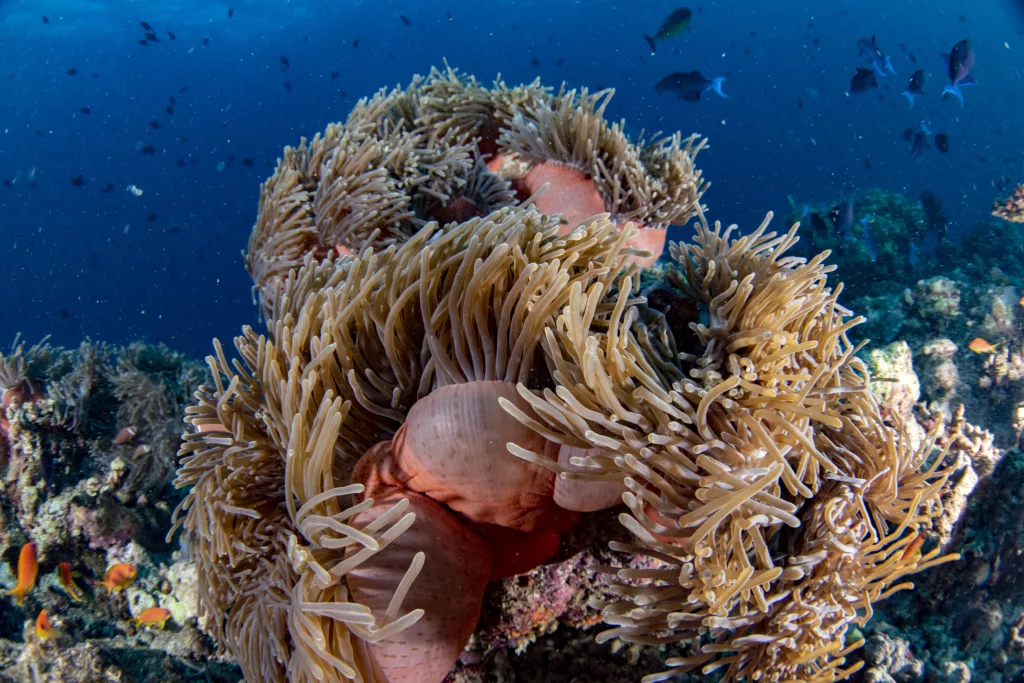
Bali, renowned worldwide as a premier destination for diving enthusiasts, offers a rich tapestry of captivating and diverse dive sites that cater to every level of expertise. This famed Indonesian island is a treasure trove of underwater wonders, from the intricate coral gardens teeming with life to the haunting allure of historical shipwrecks. The marine biodiversity concentrated in this tropical paradise is awe-inspiring, with vibrant slices of aquatic life seemingly at every turn, providing a feast for the eyes and an enriching experience for divers.
Bali offers year-round diving opportunities, but for unmatched visibility, the dry season from May to September is considered the best time to explore its depths. During this period, the seas are generally calmer, and the underwater visibility is at its peak, allowing divers to fully appreciate the breathtaking marine landscapes and the bustling activity of fish and other sea creatures. However, no matter when you choose to dive in Bali, thorough preparation and an understanding of the conditions are crucial for a safe and enjoyable experience.
One of the unique aspects of diving in Bali is the diversity of its dive sites, which cater to various skill levels and preferences. For beginner divers, sites like Padang Bai and Tulamben offer a gentler introduction to the underwater world. These locations are known for their relatively mild currents and shallow depths, providing a safe environment for those new to scuba diving. The USS Liberty Shipwreck in Tulamben is particularly popular among beginners, offering a captivating glimpse into history and a vibrant ecosystem without challenging dive conditions.
On the other hand, experienced divers seeking a more adrenaline-fueled experience often flock to Nusa Penida, a site renowned for its formidable currents and large pelagic species like manta rays and mola mola. The swift currents here can be intense, requiring advanced skills and experience in drift diving. For those ready to tackle the challenge, Nusa Penida provides an exhilarating adventure and the chance to witness some of Bali’s most iconic marine life.
Safety should always be the top priority when diving in Bali. Before heading into the water, it’s essential to check weather and sea conditions, ensure your equipment is in good working order, and be aware of the specific hazards associated with each dive site. Additionally, diving with a reputable dive center that prioritizes safety and employs experienced instructors is crucial, especially when exploring more challenging sites.
In summary, Bali’s reputation as a diving paradise is well-deserved, thanks to its diverse range of dive sites and abundant marine life. Whether you’re a novice diver seeking calm waters and easy exploration or a seasoned professional craving the thrill of strong currents and large marine species, Bali has something for everyone. With the right preparation and respect for the ocean’s power, diving in Bali can be a safe, unforgettable experience that leaves you with memories to last a lifetime.
Scuba Diving Safety: Tips and Basics
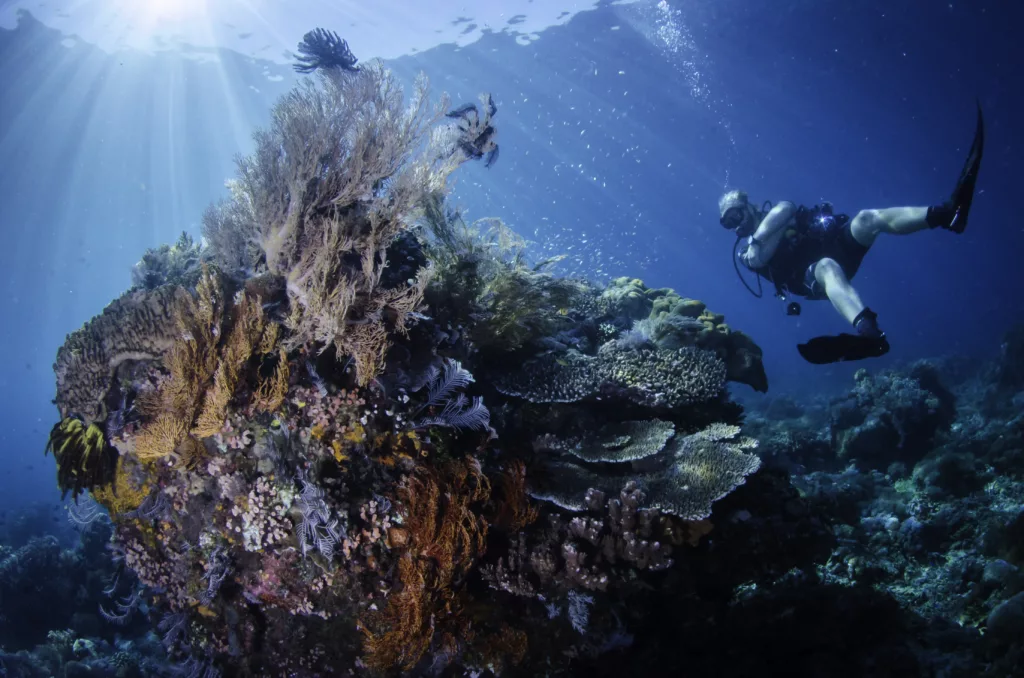
Despite the exhilarating appeal of exploring the underwater world’s mystique, scuba diving comes with inherent risks that demand careful consideration and strict safety protocols. To ensure your diving adventures in Bali are as safe as they are thrilling, it’s crucial to prioritize robust training, diligent equipment maintenance, and strict adherence to dive limits. Proper training through certified courses lays the groundwork for a safe diving experience, offering you the skills and knowledge to navigate the underwater environment confidently.
One of the key safety practices is conducting a thorough pre-dive safety check. This routine check is non-negotiable and acts as your lifeline, ensuring all your gear is in perfect working order before you descend. It includes inspecting your scuba equipment, such as regulators, buoyancy control devices (BCDs), tanks, and gauges, to confirm everything is functioning correctly. Any abnormalities or issues should be addressed before entering the water to avoid complications during the dive.
Breathing control is another fundamental aspect of scuba diving safety. The golden rule in diving is to never hold your breath while underwater. Keeping a steady, controlled breathing pattern not only ensures a constant oxygen flow but also prevents barotrauma caused by pressure changes during ascent or descent. Practicing calm, rhythmic breathing can help you stay relaxed and focused during your dive, allowing you to enjoy the experience without unnecessary stress.
Buoyancy control is a skill that greatly contributes to your safety and overall diving experience. Mastering buoyancy helps you maintain a steady position in the water, avoiding unnecessary contact with delicate marine life or hazardous objects. Regular practice and fine-tuning of your buoyancy control will enable you to maneuver smoothly through Bali’s dive sites, reducing the risk of accidental damage to the ecosystem and enhancing your ability to respond to potential underwater challenges.
It’s also crucial to strictly adhere to your dive plan, which includes respecting dive time limits, maximum depth, and ascent rates. Deviating from the plan can lead to disorientation, exhaustion, or other dangerous situations. Under no circumstances should you venture out solo, regardless of your experience level. Always dive with a buddy or as part of a group, as having a companion provides an extra layer of safety and support in case of emergencies.
In Bali, where currents can be strong and dive sites vary in difficulty, these safety practices become even more critical. By prioritizing training, conducting thorough equipment checks, maintaining controlled breathing, mastering buoyancy, and sticking to your dive plan, you can significantly reduce the risks associated with scuba diving. Remember, safety is not just about protecting yourself—it’s about respecting the underwater environment and ensuring that your diving adventures are enjoyable and memorable for all the right reasons.
Preserving Bali’s Marine Life: A Diver’s Duty
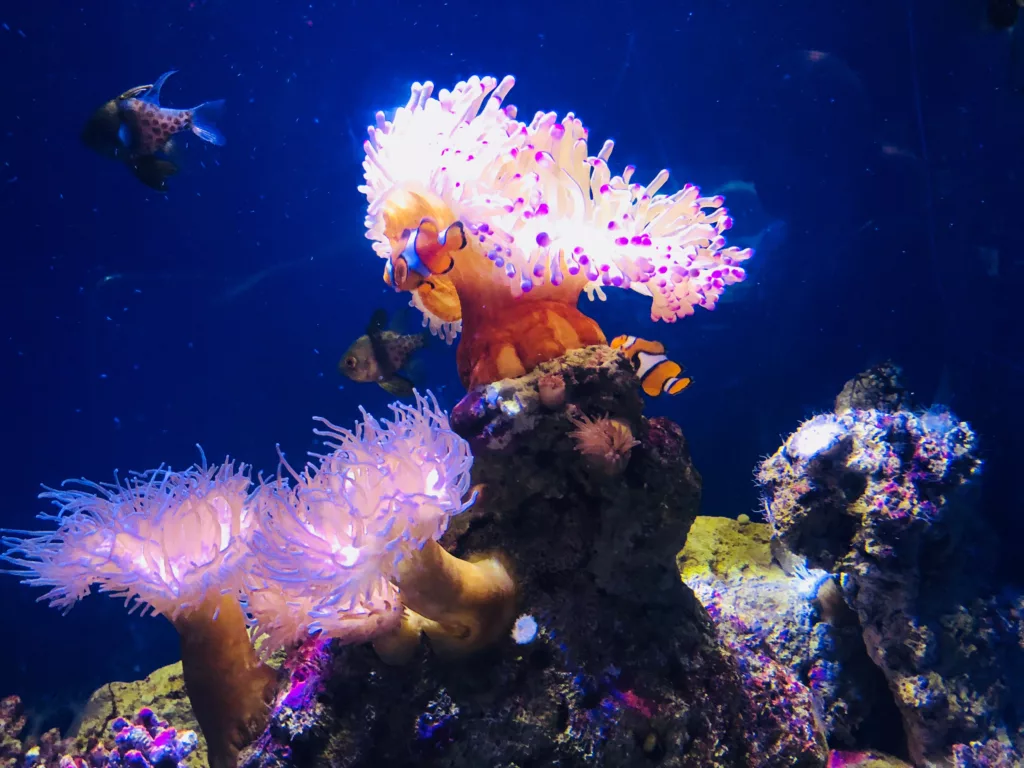
As you enjoy the wonders of underwater exploration in the jewel that is Bali, it becomes paramount to recognize your responsibility toward environmental preservation. The vibrant coral structures that make Bali’s dive sites so enchanting are highly sensitive, and even minor contact from divers can have significant consequences on their health and longevity. This is why practicing contact-free dives is crucial, ensuring that the underwater landscape remains undisturbed for future generations to appreciate.
Feeding the underwater population might seem like a harmless gesture, but in reality, it can upset the delicate balance of the marine ecosystem. Altering the natural behavior of fish and other sea creatures can lead to unforeseen ripple effects, potentially destabilizing the food chain and harming the broader environment. It’s essential to observe marine life from a distance, allowing creatures to maintain their natural instincts and behaviors.
As divers, encountering pollution in the ocean can be disheartening. The beauty of a dive site can quickly be tarnished by the sight of plastic straws, bags, and bottles littering the seafloor. Sadly, this kind of pollution is a common occurrence, and it poses a severe threat to marine life, causing harm to animals that ingest or become entangled in debris. Taking a proactive stance against this issue is not only commendable but necessary to ensure the sustainability of Bali’s underwater ecosystems.
One way to make a tangible impact is by participating in a Dive Against Debris survey. These initiatives invite divers to actively engage in ocean conservation by removing trash from dive sites and collecting data on the types of debris found. By taking part in these efforts, you become a guardian of the ocean, contributing to a global database that informs policy and helps combat marine pollution. It’s a rewarding experience that allows you to give back to the environment that brings you so much joy.
Promoting diving safety extends beyond personal well-being—it encompasses the health of the entire marine environment. When you dive in Bali, always remember to maintain a safe distance from coral and marine life, avoid touching or feeding animals, and be mindful of your impact on the ecosystem. By adopting these environmentally conscious practices, you’re not only protecting yourself but also playing a vital role in preserving Bali’s underwater beauty.
Together, divers can make a significant difference in protecting and preserving Bali’s rich marine life. Through responsible diving practices and active participation in conservation efforts, we can ensure that the breathtaking underwater world remains a source of inspiration and wonder for years to come. So, as you gear up for your next dive, take a moment to consider the impact of your actions and choose to be a steward of the ocean. The future of Bali’s marine ecosystems depends on the care and respect we show today.
The Final Safety Marker
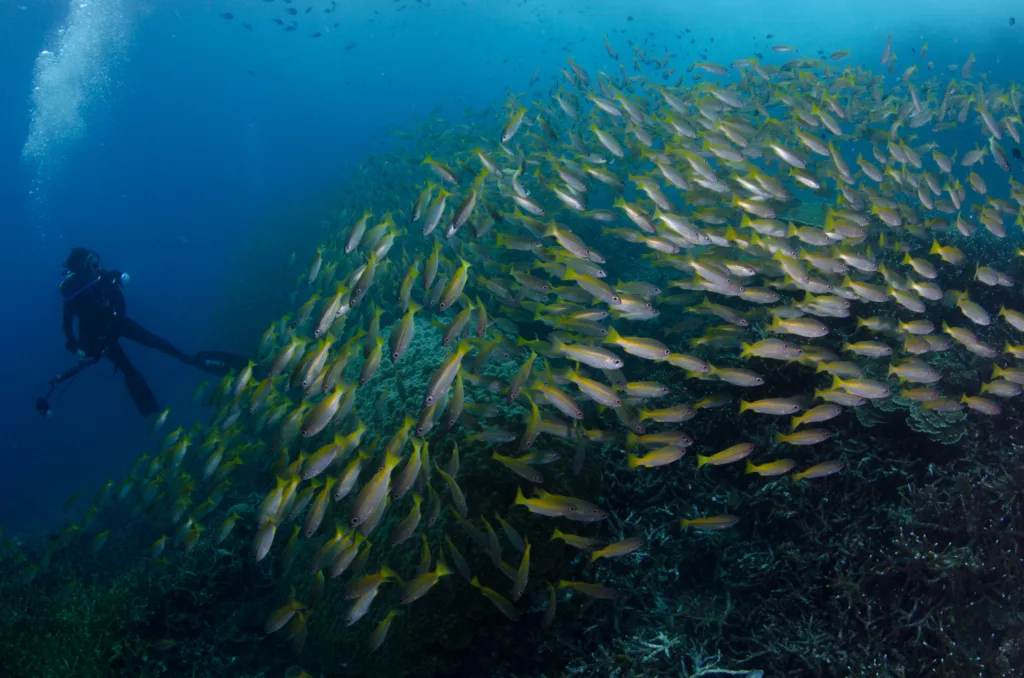
Bali’s underwater world is a realm of extraordinary beauty, offering a captivating playground for scuba diving enthusiasts. Yet, while the excitement of diving in these rich marine environments is undeniable, safety must remain at the forefront of every dive. By mastering the fundamentals of scuba diving, adhering to dive limits, and ensuring that your equipment is in top condition, you can enjoy the thrill of exploration without compromising your safety or that of others.
The key to safe diving starts with proper training. Whether you’re new to scuba diving or an experienced diver, it’s crucial to stay updated on diving techniques and safety protocols. Certified dive schools and experienced instructors in Bali can help you hone your skills, ensuring you’re well-prepared for the unique challenges of the island’s dive sites. Additionally, a thorough understanding of dive limits—such as maximum depths, no-decompression times, and safe ascent rates—is essential for avoiding risks like decompression sickness.
Another critical aspect of diving safety is regular equipment maintenance. Before every dive, conduct a comprehensive check of your scuba gear, including regulators, buoyancy control devices (BCDs), and air tanks. If you notice any issues, address them promptly or seek assistance from a professional. A well-maintained kit ensures you’re ready for a safe and enjoyable dive, free from unexpected equipment failures.
Beyond personal safety, diving in Bali requires a commitment to respecting the vibrant marine life that calls these waters home. Touching or disturbing coral reefs and marine creatures can cause irreparable damage to the ecosystem. As a responsible diver, you should avoid any contact with underwater life and never remove anything from its natural environment. By maintaining a safe distance and observing with care, you can help preserve the beauty of Bali’s underwater world for future generations.
Participating in conservation efforts, such as Dive Against Debris surveys or beach clean-ups, is another way to contribute to the health of Bali’s marine ecosystem. These initiatives allow divers to actively engage in protecting the environment while exploring its wonders. By taking part, you help maintain the majesty of one of the world’s premier diving destinations, ensuring that the extraordinary beauty of Bali’s underwater realm endures.
As you gear up for your diving adventures in Bali, remember that safety and respect for the environment go hand in hand. With a focus on safety, proper training, equipment care, and environmental stewardship, you can enjoy unforgettable underwater experiences that leave a positive impact. Dive safely, appreciate the natural wonders of Bali, and relish every moment of your exploration in this breathtaking island paradise.

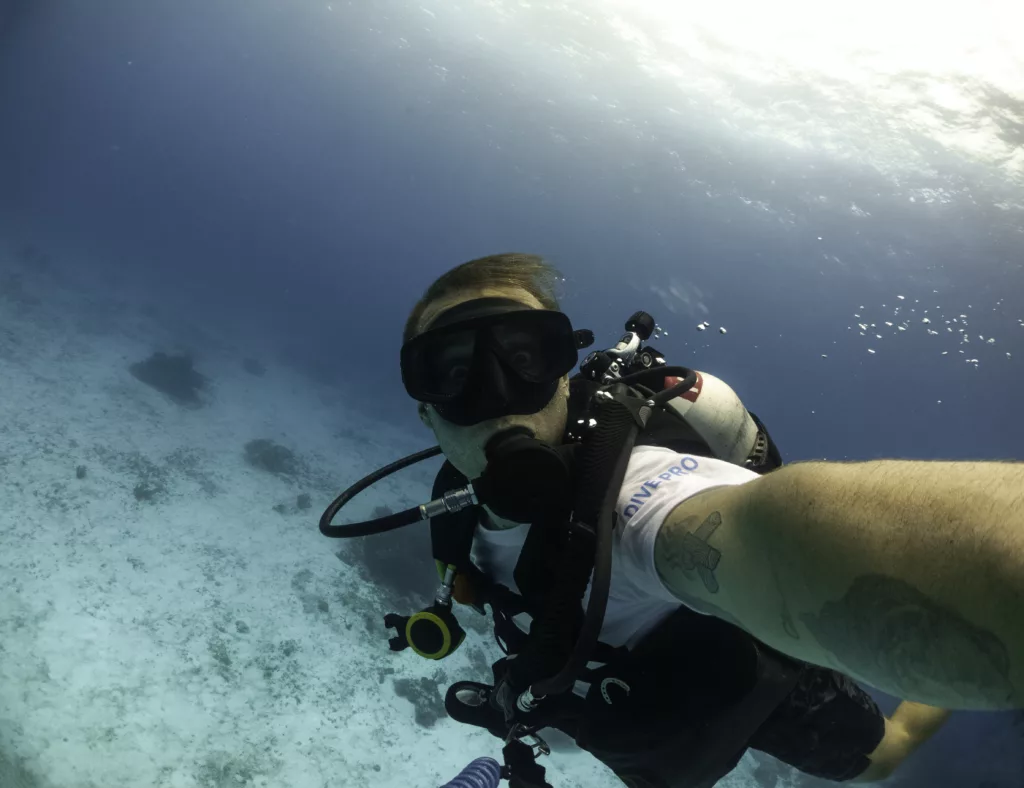
I completely agree with the importance of safety and respect for the environment in diving. It’s crucial to ensure that we’re not only having a great time exploring the underwater world, but also doing so in a responsible manner.
Thank you for sharing your thoughts on the importance of safety and respect for the environment in diving, Emily! At our resort, we’re committed to making a positive impact at the local level through education and providing job opportunities. Our dedicated training facilities are designed to support the growth and development of our local staff and community members. We believe that by prioritizing sustainability and responsible tourism practices, we can create a brighter future for Bali’s marine ecosystem and its inhabitants. If you’re interested in learning more about our initiatives or would like to get involved, please don’t hesitate to reach out to us at [email protected] or +62 857 3891 8262.
I’m glad to see that this blog post emphasizes the need for proper training and equipment maintenance. As a seasoned diver, I’ve seen far too many people diving without taking these essential steps.
Thank you for sharing your valuable experience, Rizal! At Pebble & Fins, we take pride in prioritizing safety and education. It’s crucial to ensure that all divers, regardless of their level of expertise, understand the importance of proper training and equipment maintenance. Our dedicated team is committed to providing top-notch guidance and support to ensure a safe and enjoyable diving experience for our guests. If you have any questions or concerns about our dive courses or packages, please don’t hesitate to reach out to us at [email protected] or +62 857 3891 8262.
I love the emphasis on preserving the marine life and ecosystems in Bali. As divers, we have a responsibility to respect and protect the environments we explore.
Thank you for sharing your thoughts on preserving marine life and ecosystems in Bali! At Pebble & Fins, we’re committed to making a positive impact on the environment through responsible diving practices and conservation efforts. We’re glad you agree that as divers, we have a responsibility to respect and protect the environments we explore. If you have any questions or would like to learn more about our initiatives, please don’t hesitate to reach out. You can contact us at [email protected] or +62 857 3891 8262. We’d be happy to hear from you!